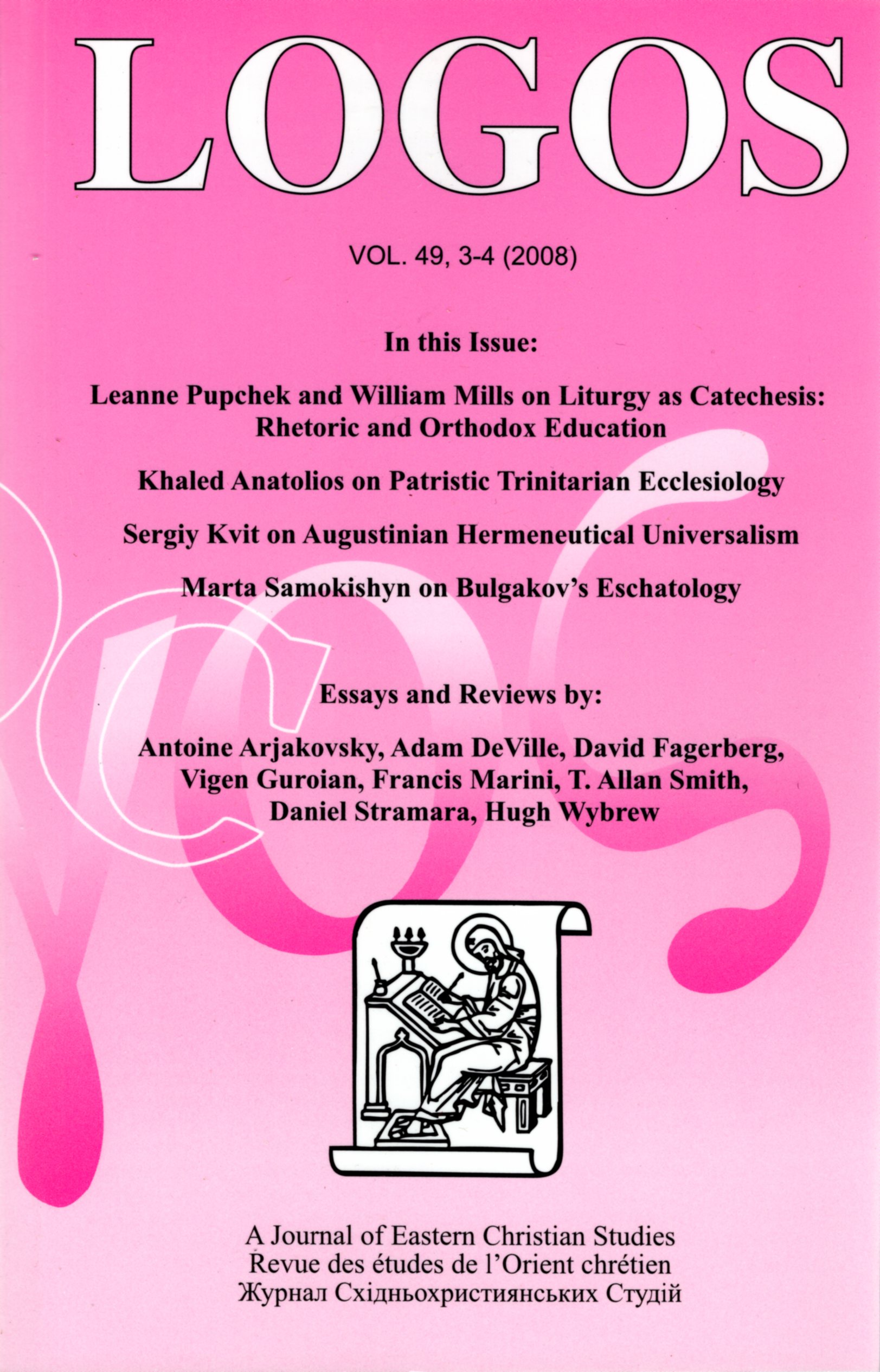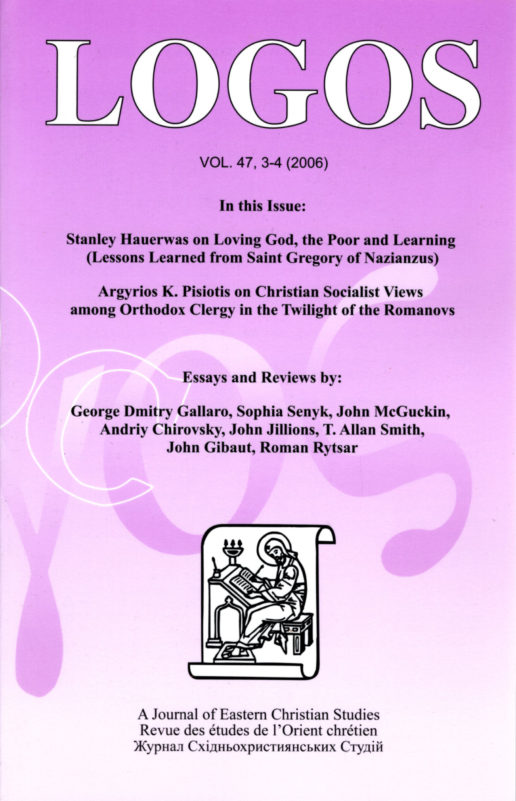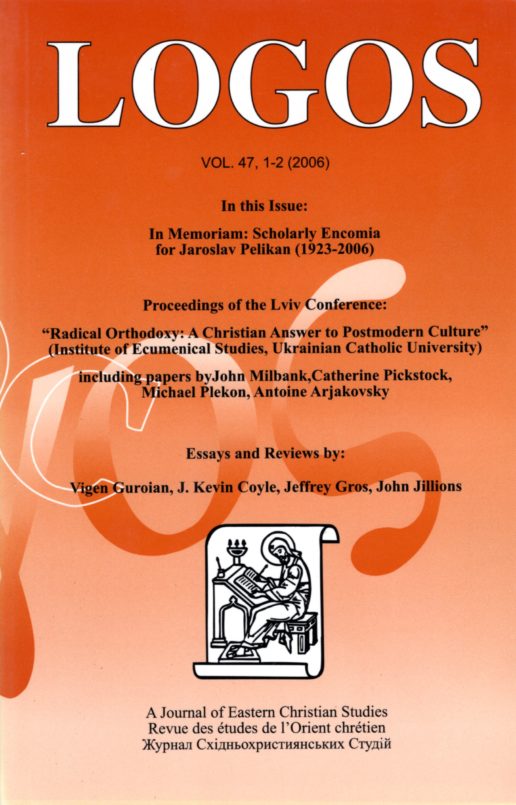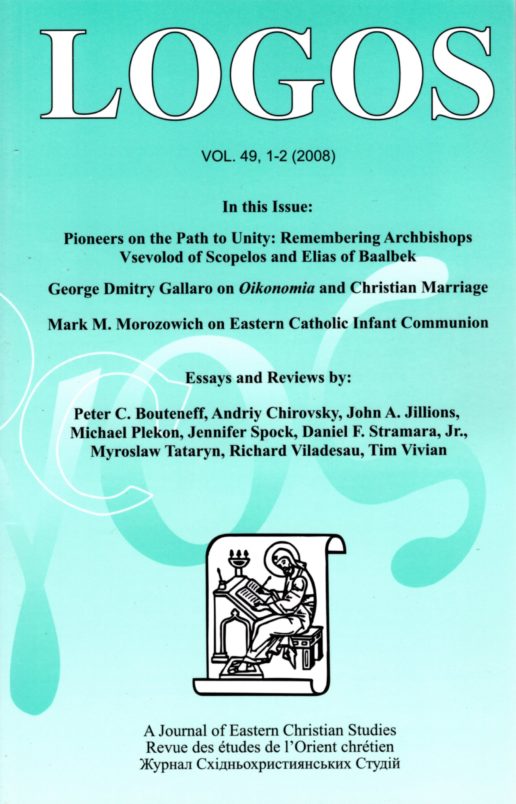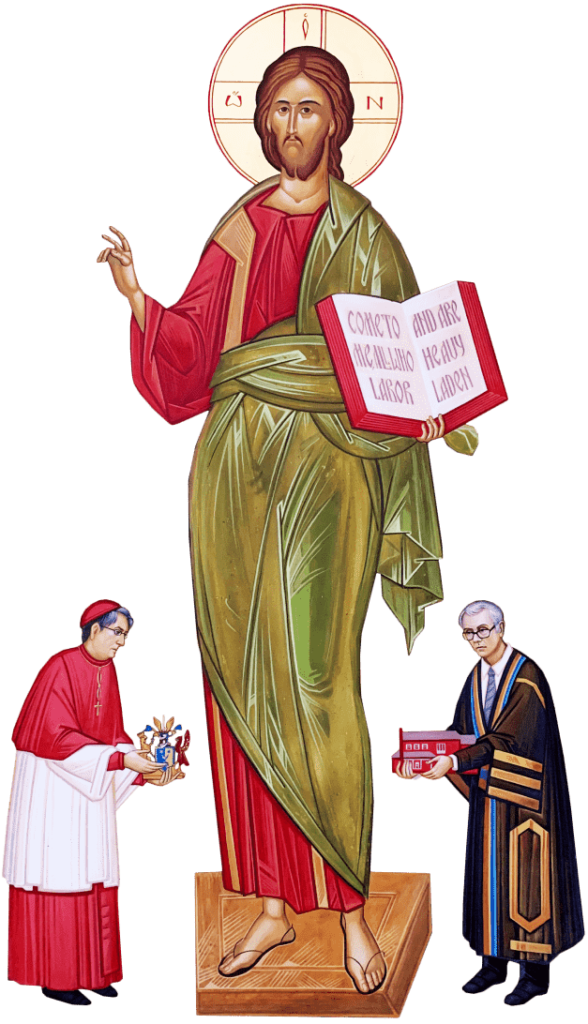Description
Table of Contents (PDF)
Editorial
Holodomor 1933–2008: Some Preliminary Principles for Theological Reflection on the Ukrainian Terror-Famine (PDF sample)
Andriy Chirovsky (203)
Article
Liturgy as Catechesis: A Rhetorical Perspective on Orthodox Christian Educational Practice (PDF sample)
Leanne Stuart Pupchek and William Mills (209)
Abstract
Orthodox theologian Alexander Schmemann (1921–1983) spent his life trying to persuade Orthodox clergy that the liturgy provides not only the context for Christian learning, but also much of its content. Schmemann’s characterization of the liturgy’s contribution to the education and ultimate transformation of Orthodox Christians resonates with a number of contemporary rhetorical themes regarding personal and collective identities in a postmodern Western world. From the perspective of rhetoric, the need for liturgical revival that Schmemann identified emerges in part because of the dialogic tension between Eastern and Western intellectual traditions: the tension between the Gutenberg galaxy and the electronic global village that Marshall McLuhan first spoke of, between literacy and the new orality that Walter Ong examined. Once people can find themselves more integrated with culture in their interaction with media and less isolated by their literate cultural assumptions, they can present themselves at the Orthodox liturgy ready and able to be spiritually transformed into disciples of the faith according to the catechetical teachings they encounter. As a new orality emerges in Western cultures, the Orthodox liturgy serves people who more and more will come to church ready for the liturgy to serve as catechesis as it did in ancient times when the Church and the host culture were more strongly interwoven.
Резюме
Александр Шмеман (1921–1983) протягом усього життя намагався переконати православне священство, що богослуження є джерелом не лише контексту християнської науки, а й значною мірою самого її змісту. Його характеристика літургічного внеску в освіту та всебічну переміну православних християн резонує великою кількістю одночасних риторичних тем щодо індивідуальної та колективної тотожностей у постмодерному Західному світі. З точки зору риторики, потреба літургічної віднови, яку Шмеман наголошував, частково виникає через діалогічне протистояння між Східною та Західною інтелектуальними традиціями: протистояння між галактикою Ґутенберґа та світовим електронним селом, про яке вперше заговорив Маршал МакЛуган, як і між писемністю та новим мовленням, розглянутим Вальтером Онґом. Оскільки у Західних культурах з’являється нове мовлення, православне богослуження слугуватиме людям, які все частіше будуть приходити до храму, за катехизу, як це було у давні часи, коли Церква та культура, в якій Церква діяла, були тісно взаємозв’язані.
Sergii Bulgakov’s Eschatological Perspectives on Human History (PDF sample)
Marta Samokishyn (235)
Abstract
Sergii Bulgakov was one of the most creative and important Russian Orthodox theologians of the twentieth century, associated with the internationally influential “Paris school” of theology based at l’Institut Saint-Serge, where so many post-revolutionary East-Slavic intellectuals found refuge and undertook creative work. After a brief biographical sketch reviewing the main contours of his life, the question of human history and its transcendental dimension is examined here through the issue of human creativity. All this is seen in Bulgakov’s discussions of the relationship between culture and eschatology. The topic of human creativity in history, which is expressed in the eschatological exclamation “Maranatha!” is of great relevance today. Bulgakov’s anthropological approach to history, the boundaries of history, the antinomic relationship between time and eternity, the tragedy of human history, and its resultant openness to eschatology, are all examined along with Bulgakov’s understanding of history’s transfiguration through the creative holiness of the Church.
Резюме
Сергій Булгаков – один із найбільш творчих та визначних російських православних богословів 20-го століття. Його ім’я пов’язане із всесвітньо відомою «Паризькою школою» богослов’я, заснованою в Інституті Святого Сергія, що став прихистком та місцем творчої діяльности для багатьох пореволюційних східнослов’янських мислителів. Після короткої біографічної довідки автор розглядає питання історії людства та її трансцендентального виміру крізь призму людської творчости. Усе це можна побачити у дискусіях Булгакова про взаємозв’язок культури та есхатології. Тема людської творчості в історії, виражена в есхатологічному вигуку «Мараната!», є надзвичайно важливою для сьогодення. Антропологічний підхід Булгакова до історії, до її меж, до антиномічних зв’язків між часом та вічністю, до трагедії історії людства та, як наслідок, її відкритости на есхатологію – усе це автор розглядає у світлі розуміння Булгакова переміни історії через призму творчої святости Церкви.
Notes, Essays, Lectures
The Church as Trinitarian Icon: Patristic Wisdom for Today’s Church (PDF sample)
Khaled Anatolios (263)
Saint Augustine’s Hermeneutical Universalism (PDF sample)
Sergiy Kvit (279)
MASI Inaugural Study Days a Marked Success
Michael Winn (287)
Book Reviews
Anna M. Silvas, Gregory of Nyssa: The Letters: Introduction, Translation and Commentary
Daniel F. Stramara, Jr. (295)
Norman Russell, Theophilus of Alexandria
Khaled Anatolios (298)
Michael K. Magee, The Patriarchal Institution in the Church: Ecclesiological Perspectives in the Light of the Second Vatican Council
Francis J. Marini (302)
Susan Ashbrook Harvey, Scenting Salvation: Ancient Christianity and the Olfactory Imagination
Vigen Guroian (306)
Andrzej Poppe, Christian Russia in the Making
T. Allan Smith (310)
Paul Bradshaw and John Melloh, eds., Foundations in Ritual Studies: A Reader for Students of Christian Worship
David Fagerberg (314)
Hyacinthe Destivelle, Le concile de Moscou (1917–1918): La création des institutions conciliaires de l’Eglise orthodoxe russe
Antoine Arjakovsky (318)
Antoine Arjakovsky, Church, Culture, and Identity: Reflections on Orthodoxy in the Modern World
Adam A.J. DeVille (322)
Joseph F. O’Callaghan, Electing our Bishops: How the Catholic Church Should Choose Its Leaders
Peter Norton, Episcopal Elections 250–600: Hierarchy and Popular Will in Late Antiquity
Adam A.J. DeVille (325)
Christoph Baumer, The Church of the East: An Illustrated History of Assyrian Christianity
Hugh Wybrew (331)
Francesca Aran Murphy and Christopher Asprey, eds., Ecumenism Today: the Universal Church in the 21st Century
Adam A.J. DeVille (336)
Sydney H. Griffith, The Church in the Shadow of the Mosque: Christians and Muslims in the World of Islam
Adam A.J. DeVille (340)
Briefly Noted (343)
Books Received (351)
Contributors (355)
Language: English, Ukrainian
Softcover: vi, 176 pages
Publisher: The Metropolitan Sheptytsky Institute of Eastern Christian Studies
ISSN: 0024-5895
Digital File: $15
Size: 1 MB
A link to the PDF file of this title will be sent to you. The PDF file is for your personal use only. You may not copy, share, publish, or sell the file. Protected by copyright of the Metropolitan Andrey Sheptytsky Institute of Eastern Christian Studies.

